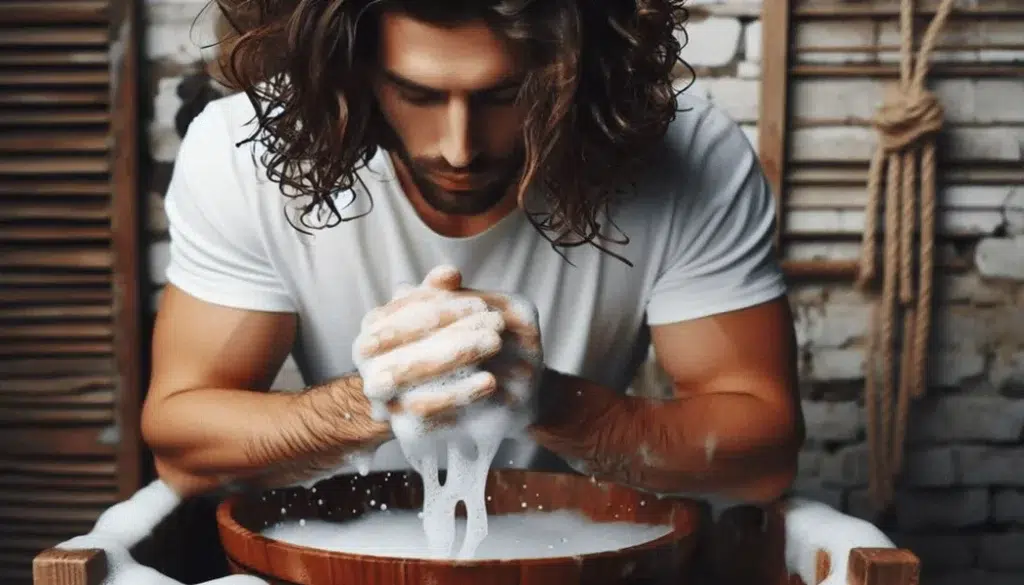Ever wonder why after just one day your hair feels like an oil slick? It all starts with the sebaceous glands that hang out under your scalp. These little guys are busy bees, pumping out sebum, a natural oil that keeps your strands shiny and moisturized. While sebum is essential for a healthy scalp, things can go from zero to oily real quick when these glands go into overdrive.
So, why do some people have scalps that rival a well-oiled machine while others don’t? Genetics often play a huge role. If your parents struggled with oily hair, chances are you’ll find yourself in the same boat. Hormonal changes, especially during puberty or stress, can switch your scalp’s oil production up a notch too. Plus, let’s not forget diet; eating lots of greasy or processed foods might nudge those glands to produce more oil.

The products you slap onto your hair also matter. Heavy conditioners and styling products can build up on the scalp, leading to excess oiliness. It’s kind of like that feeling after binging on too many snacks—you just feel full. Some shampoos might even strip your scalp of its natural oils, causing it to panic and produce even more.
So there you have it. Your scalp isn’t just being moody; there’s real science at work here. Maybe it’s time to shake up your hair care routine or look into those family genes a bit more. Whatever the reason, getting to know your scalp better is the first step in tackling the greasy hair conundrum.
🛢️ How to Tame Your Scalp’s Oil Factory
Timing of your washes can significantly impact scalp oiliness. Try spacing out washes to give the scalp a chance to adjust without immediately doubling down on oil production.
Shift the focus to the type of shampoos used instead of the frequency. Opt for ones designed to balance oil levels, with gentle and sulfate-free formulas.
If you’re a fan of dry shampoo, make it your sidekick. It’s a nifty trick to soak up excess oils between washes while still keeping your style intact.

Consider a detox for your scalp every now and then. Products designed specifically for scalp health can wash away product buildup and rebalance oil production.
Herbal shampoos that block DHT could be of significant benefit. Lotions that are packed with beneficial herbal ingredients that effectively block DHT could also significantly reduce the problem
As daily habits and environments can contribute, wearing a hat in pollution-heavy areas could protect against dirt settling on the scalp.
When working out, try hairstyles that keep hair off the face and wipe sweat away frequently to avoid oils setting in.
🧴 Effective Tips to Manage Greasy Hair
Finding the perfect balance with your washing routine can do wonders. Spacing out washes might sound counterintuitive, but it helps your scalp regulate oil on its own. Try every other day or even every third day and see how your hair responds.
When it comes to products, light is right. Use shampoos and conditioners that are labeled as “volumizing” or “balancing.” These tend to be less rich than moisturizing products and can keep that oil slick at bay.

Rinsing thoroughly is often overlooked. Any leftover residue can make its way down to your scalp, creating an oily faux pas. So, spend those extra few minutes making sure every bit of product is washed out.
exploration into styles less prone to looking oily quickly. Braids, loose buns, or ponytails can not only keep your hair looking neat but also prevent you from touching it too often (less contact means less oil transfer).
Explore dry shampoo options if you haven’t already. It’s great for in-between wash days, absorbing oils, and adding a bit of volume. Choosing a product that matches your hair type is important here.
Taking a look at your diet can sometimes reveal surprising culprits. Reducing high-fat and sugary foods might help manage scalp oil production. Hydration and a balanced diet are your best friends in the fight against greasy hair.
⚕️ Greasy Hair and Health: Signs and Symptoms to Consider
Greasy hair might just be your scalp doing its usual routine, but sometimes it’s a good idea to look a bit deeper. If your hair is persistently greasy even after trying various methods, there could be something else at play.
Certain medical conditions can cause increased oil production. Hormonal imbalances, such as those that occur in polycystic ovary syndrome (PCOS), can lead to excess oil on the scalp.
Another possible link is seborrheic dermatitis, which tends to make the scalp produce extra oil and feels flaky or irritated. If a range of symptoms shows up alongside oily hair, like redness or itchiness, it might be time to get checked out by a dermatologist.
Stress could be a sneaky culprit too. When stress levels rise, so does the activity of the sebaceous glands. If you find your hair gets especially greasy during stressful periods, managing stress with mindfulness or exercise could be beneficial.
Some medications might also affect how much oil your scalp produces. If you’ve started a new medication and notice more oiliness, it could be worth mentioning this to your healthcare provider.
Taking a deeper look can also bust some myths about greasy hair. It is not dirty or unhygienic and doesn’t mean you’re not washing properly. Understanding that your hair’s oiliness is largely biological can help you manage it better.

📌 Frequently Asked Questions
Why does my hair get greasy so fast?
Your scalp may be producing excess sebum due to hormonal changes, genetic predisposition, high stress levels, poor diet, or improper hair care routines. All of these can throw off your scalp’s natural oil balance.
How often should I wash my hair if it gets oily quickly?
It depends on your hair type and lifestyle:
– Fine or straight hair: daily or every other day
– Medium or wavy hair: every 1–2 days
– Thick or curly hair: every 2–3 days
Washing too often can strip your scalp of essential oils, but not washing enough can lead to buildup. The key is balance – and choosing the right shampoo.
Can washing my hair too often make it oilier?
Yes, it can. Overwashing strips your scalp of its natural oils, which can trigger your sebaceous glands to go into overdrive.
The result? Even more oil production.
This creates a vicious cycle where the more you wash, the more your scalp tries to compensate.
To break the cycle, gradually reduce washing frequency and switch to a gentle, sulfate-free shampoo.
Does dry shampoo really help with greasy hair?
Dry shampoo can be a quick fix, but it’s not a long-term solution.
It absorbs excess oil and gives your hair a cleaner appearance between washes, which can be helpful on busy days.
However, using it too often can lead to buildup, clogged pores, and irritation.
Always wash your hair properly after a few uses to keep your scalp healthy and breathing.
Are there natural ways to reduce hair greasiness?
Absolutely. Some of the best natural methods include:
– Apple cider vinegar rinse: helps balance scalp pH and remove residue
– A weekly detox shampoo: clears buildup and resets oil production
– Sulfate-free shampoo: gently cleanses without overstimulating sebum
– Avoiding heavy conditioners near the roots: reduces greasiness at the base
– Green tea or witch hazel toner: can calm oily scalps and reduce inflammation
These methods won’t strip your scalp but can help it find a healthier balance over time.
🧾 Last updated: June 2025 based on latest research.
s

Leave a Reply